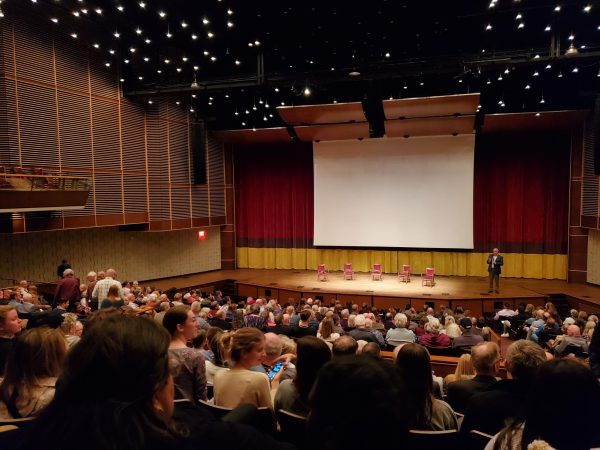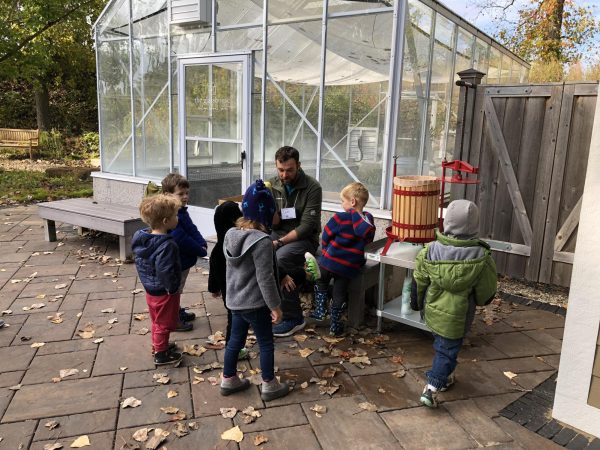Student workers balance work and play
While many students traveled home for spring break early this month or went on vacation away from the Michigan winter, some remained on campus, paying for the extra time in the dorms in order to work or because home was too far away. Break is a big example, but for some students daily life includes similar choices on a smaller scale, with financial responsibilities competing with “typical” college student experiences, like taking weekend trips or attending sports events.
Tough choices
Hannah Brenton, Area Coordinator of the Knollcrest East apartments on campus, told Chimes she feels for the students “who don’t have the choice to go home during these breaks.” Some of these students will find themselves on campus in order to work or save money from the cost of travel. Others find home is too far away and are unable to reasonably go home for the weekend and other short breaks. As Brenton told Chimes, for these students it is simply not a choice to stay or to leave.
The mostly-empty campus can be a bit sad, according to resident directors across campus. When campus is empty, “it becomes apparent it’s a space meant to be filled with students. It’s meant to be filled with activities, community and engagement,” said Paula Tangsirisatian, resident director of Kalsbeek-Huizenga-vanReken. Timothy Lopez, Area Coordinator of Boer-Bennink and Beets-Veenstra told Chimes that it can be “somewhat psychologically unnerving for there to be very few people.” Lopez believes student life is a strong part of the Calvin community, and because of this an empty campus was simply not the same.
According to Tangsirisatian, student life is an important part of a Calvin experience, and for students who miss out, it can be detrimental. As a Calvin alumna herself who graduated in 2021, Tangsirisatian told Chimes she “found the most fruition when engaged in the different dorm activities, campus activities that Student Senate would provide, KnightLife, or just [with her] dorm and floor.” Whether it be floor dinners, taking a bus to Hope rivalry games or individual dorm events, there are many activities for students to participate in.
These events are still important for students living on campus, according to Joshua Park, a freshman: “I don’t go off campus a lot. Most of my life is based on campus, so depending on what’s happening here … affects me a lot.”
But for Calvin’s student workers, putting in shifts sometimes means missing out on student life activities. For Park, who works in concessions, it means attending sports events as a worker, not an observer. “I work in Johnny’s, so whenever there’s a game, sometimes I work in concessions. So I wouldn’t be able to watch the game because I’m in concessions serving hot dogs,” Park told Chimes.
According to Park, his experience is dwarfed by some of his fellow workers, who work as much as 20 hours a week. For those that are working more often, he feels “it’s inevitable that they miss a lot of the events.”
Workers like Park and others often must make the decision between attending an event or working a shift. The main contributing factor in these decisions is prioritizing earning money to cover tuition and personal expenses.
Missing out?
FOMO — or, the fear of missing out — is a slang term that originated on social networking sites in the early 00’s. It’s been a popular way for young people to describe the feeling that other people are having fun without them. According to Tangsirisatian, post-pandemic social engagement patterns have emphasized spending time alone as a conscious and rejuvenating decision — one students can make without FOMO.
Tangsiritsatian prefers the newer term JOMO — joy of missing out. JOMO means “I’m perfectly content missing out because my capacity just can’t handle opportunities, or there aren’t opportunities,” Tangsirisatian told Chimes. Lopez said there seems to have been “death of FOMO on college campuses. I don’t really think it’s actually that big of a pressure for most students anymore.”
For student workers, Park told Chimes it is “case-by-case” whether student workers mind sometimes missing out.
“If you’re someone who enjoys those events and likes to participate in the school community a lot, but you still have to work, it would be a cause for FOMO, but if you don’t care that much or you’re not affected by it that much it wouldn’t be a cause necessarily,” Park said.







